
Anjuna: The Heartbeat of Goa's Bohemian Spirit
Nestled along the sun-kissed coastline of North Goa, Anjuna is a vibrant neighborhood that effortlessly blends its rich history with a free-spirited, bohemian vibe. Known for its stunning beaches, lively markets, and legendary nightlife, Anjuna offers a unique slice of Goan life that is both laid-back and electrifying. Anjuna Beach, with its soft white sands and crystal-clear waters, is a haven for sun-seekers and adventure enthusiasts alike. Whether you're looking to unwind under a palm tree, partake in thrilling water sports, or simply soak in the mesmerizing sunset, Anjuna Beach caters to all. The beach is also famous for its weekly flea market, where you can find everything from handmade jewelry and vintage clothing to eclectic souvenirs and local delicacies. Beyond the beach, Anjuna's charm lies in its eclectic mix of attractions. The area is dotted with quaint cafes, rustic shacks, and vibrant bars, each exuding its own unique character. Music lovers will revel in the local live music scene, which ranges from soothing acoustic performances to energetic trance parties that last until dawn. For those interested in history and culture, the nearby Chapora Fort offers panoramic views of the Arabian Sea and a glimpse into Goa's colonial past. Anjuna is also a gateway to spiritual exploration, with numerous yoga and wellness retreats offering rejuvenating experiences amidst serene surroundings. The neighborhood's artistic flair is evident in the many galleries and studios showcasing local talent, making it a perfect spot for creative souls to find inspiration.
Local tips in Anjuna
- Visit the Anjuna Flea Market on Wednesdays for unique finds and local crafts.
- Catch the sunset at Anjuna Beach for a truly magical experience.
- Explore the local music scene with a visit to iconic bars like Curlies and Shiva Valley.
- Stay hydrated and wear sunscreen to protect yourself from the tropical sun.
- Rent a scooter to easily explore the neighboring areas and hidden gems of North Goa.
Anjuna: The Heartbeat of Goa's Bohemian Spirit
Nestled along the sun-kissed coastline of North Goa, Anjuna is a vibrant neighborhood that effortlessly blends its rich history with a free-spirited, bohemian vibe. Known for its stunning beaches, lively markets, and legendary nightlife, Anjuna offers a unique slice of Goan life that is both laid-back and electrifying. Anjuna Beach, with its soft white sands and crystal-clear waters, is a haven for sun-seekers and adventure enthusiasts alike. Whether you're looking to unwind under a palm tree, partake in thrilling water sports, or simply soak in the mesmerizing sunset, Anjuna Beach caters to all. The beach is also famous for its weekly flea market, where you can find everything from handmade jewelry and vintage clothing to eclectic souvenirs and local delicacies. Beyond the beach, Anjuna's charm lies in its eclectic mix of attractions. The area is dotted with quaint cafes, rustic shacks, and vibrant bars, each exuding its own unique character. Music lovers will revel in the local live music scene, which ranges from soothing acoustic performances to energetic trance parties that last until dawn. For those interested in history and culture, the nearby Chapora Fort offers panoramic views of the Arabian Sea and a glimpse into Goa's colonial past. Anjuna is also a gateway to spiritual exploration, with numerous yoga and wellness retreats offering rejuvenating experiences amidst serene surroundings. The neighborhood's artistic flair is evident in the many galleries and studios showcasing local talent, making it a perfect spot for creative souls to find inspiration.
Iconic landmarks you can’t miss
Shiva's Face
Explore the stunning Shiva's Face at Ozran Beach, a unique rock formation that captures the essence of Goa's natural beauty and spiritual heritage.
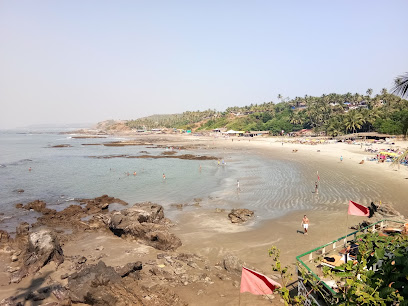
Anjuna Hill Sightseeing point of Dr. Jawaharlal Henriques
Discover the breathtaking views and rich history at Anjuna Hill, a serene park in Vagator, Goa, perfect for nature lovers and history buffs alike.
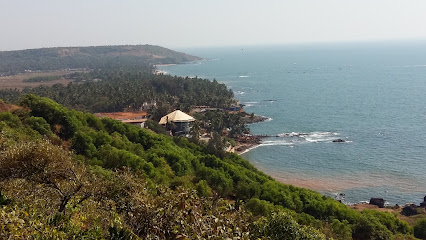
Chapora viewpoint
Experience the stunning vistas at Chapora Viewpoint, where the lush landscapes and Arabian Sea come together in perfect harmony.
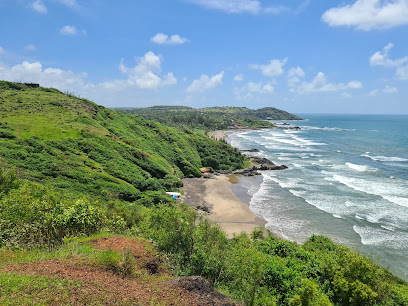
Anjuna Beach
Discover the enchanting beauty and vibrant culture of Anjuna Beach, a premier destination in Goa that offers relaxation, adventure, and unforgettable experiences.
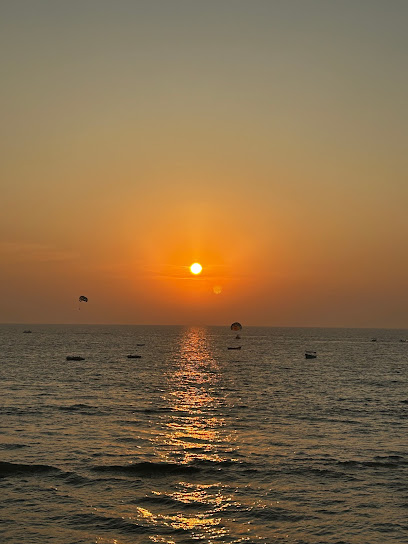
Anjuna Hillpoint
Explore Anjuna Hillpoint: A scenic getaway in Goa with breathtaking views and cultural richness, perfect for tourists seeking tranquility and beauty.
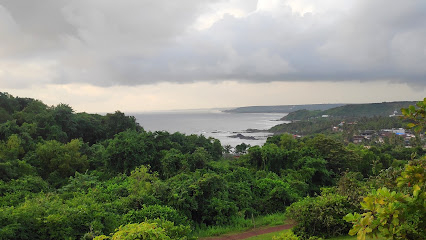
Little Vagator Beach
Experience the serene beauty of Little Vagator Beach in Goa, a perfect blend of relaxation and adventure amid stunning coastal views.
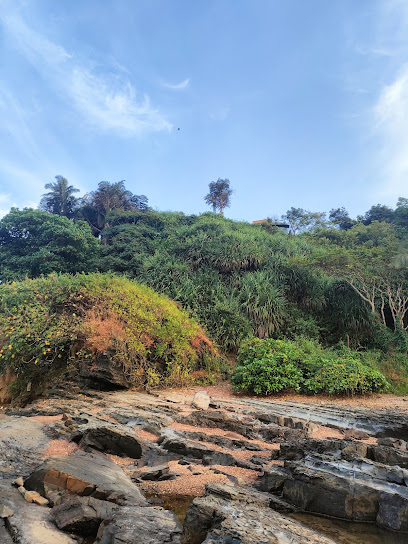
Anjuna Lake
Explore Anjuna Lake: A serene oasis in Goa perfect for relaxation, nature walks, and scenic views away from the beach crowds.
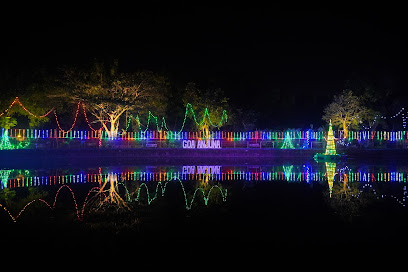
Anjuna Beach (Easy Entry)
Experience the enchanting beauty and vibrant culture of Anjuna Beach, a must-visit destination in Goa for relaxation and excitement.
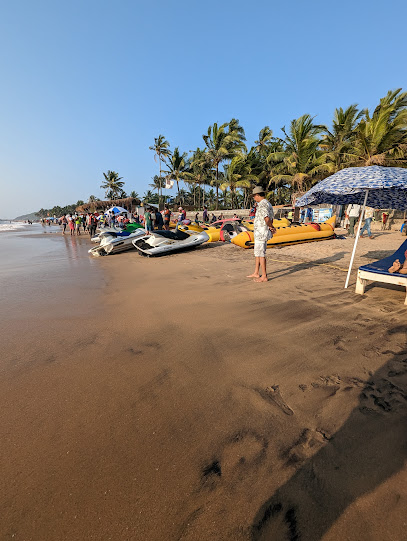
South Anjuna Beach
Experience the tranquility of South Anjuna Beach, where golden sands meet vibrant beach life in the heart of Goa.
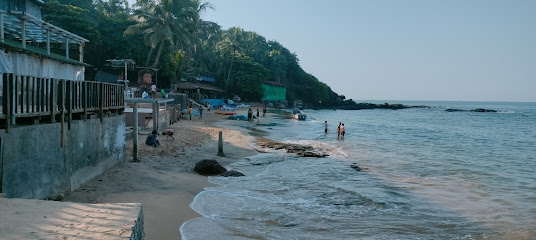
St. Michael Vaddo
Discover the historical charm of St. Michael Vaddo in Anjuna, Goa, where rich cultural heritage meets serene landscapes.
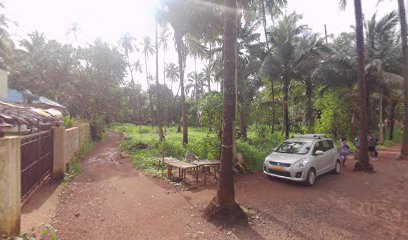
Unmissable attractions to see
Vagator Beach View
Discover the scenic beauty and vibrant culture of Vagator Beach, Goa, with its red cliffs, golden sands, and mesmerizing sunsets.
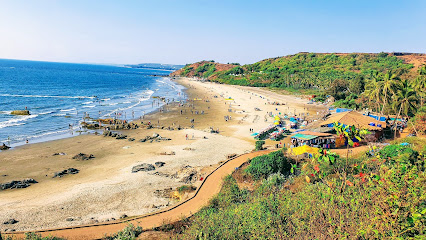
Shiva's Face
Discover the iconic Shiva's Face at Ozran Beach, Goa: a unique rock carving blending natural beauty with spiritual and cultural history.
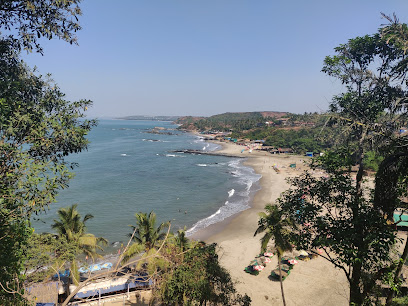
Anjuna Hill Sightseeing point of Dr. Jawaharlal Henriques
Discover breathtaking views and rich history at Anjuna Hill, a serene park in Vagator, Goa, perfect for nature lovers and history buffs alike.
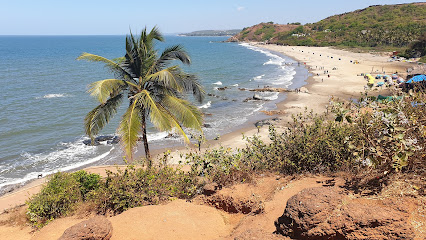
Hill Top View
Experience breathtaking sunsets and panoramic views at Anjuna's iconic Hill Top View, a must-see destination for nature and culture enthusiasts.
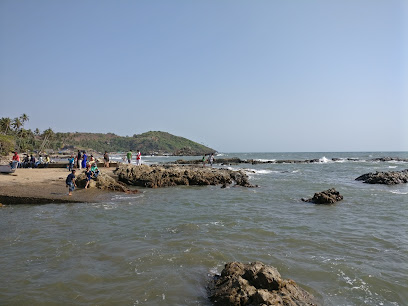
Anjuna Hillpoint
Discover breathtaking panoramic views and serene beauty at Anjuna Hillpoint, Goa's hidden gem for nature lovers and sunset seekers.
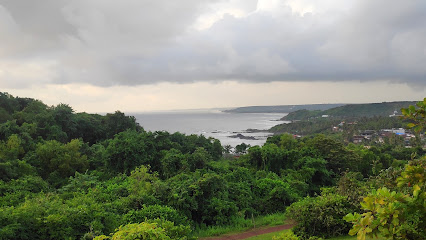
Lerapush Point
Discover breathtaking views and serene beauty at Lerapush Point in Anjuna, Goa – a perfect escape for nature lovers and photography enthusiasts.
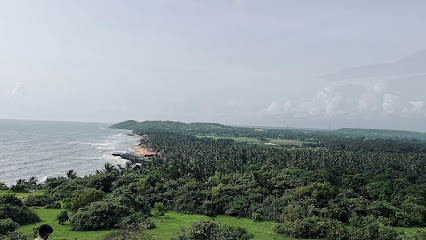
Anjuna River Front
Experience the serene beauty and vibrant culture of Goa at Anjuna River Front, a perfect blend of relaxation and social activity.
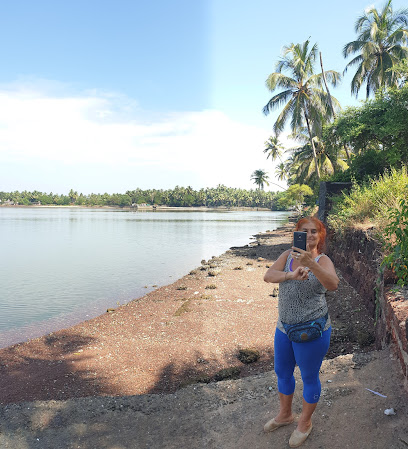
Anjuna Lake
Escape to the tranquility of Anjuna Lake, a serene natural retreat in Goa, perfect for relaxation and birdwatching.
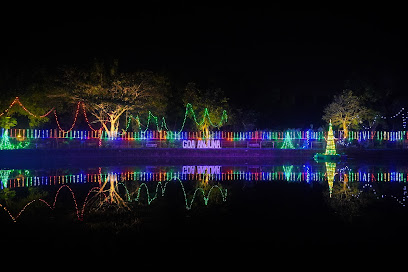
Anjuna Beach (Easy Entry)
Discover Anjuna Beach: Goa's iconic blend of golden sands, hippie history, vibrant nightlife, and the famous Wednesday Flea Market.
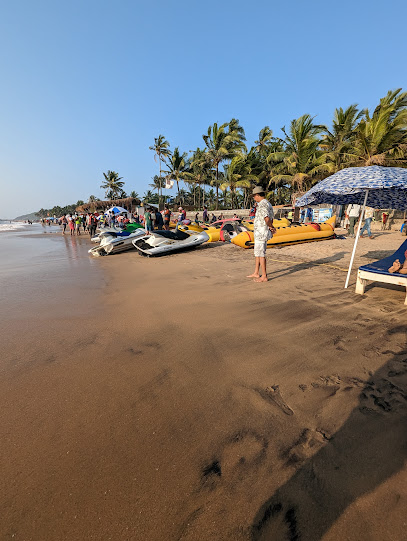
South Anjuna Beach
Escape to the tranquil shores of South Anjuna Beach, Goa: golden sands, serene sunsets, and authentic Goan charm await.
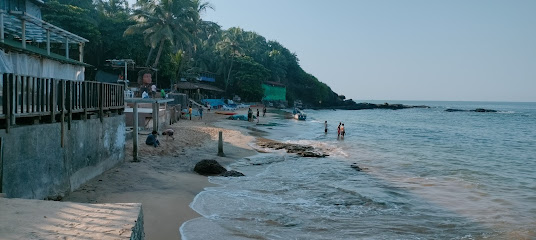
Essential places to dine
Curlies
Experience the ultimate beach lifestyle at Curlies in Anjuna – where delicious seafood meets vibrant nightlife against stunning ocean views.
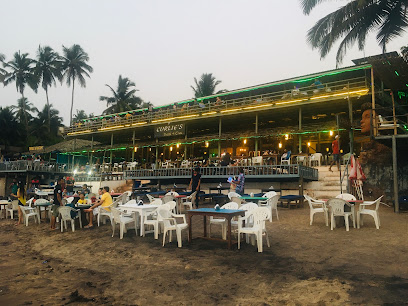
Purple Martini
Discover Purple Martini: A vibrant restaurant and bar in Anjuna, Goa offering stunning sunsets, unique drinks, and delicious cuisine.
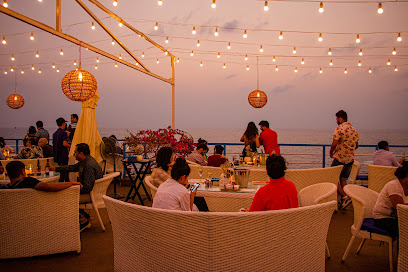
Baba Au Rhum, Anjuna
Experience the unique blend of European cuisine at Baba Au Rhum in Anjuna, where delicious flavors meet a charming atmosphere.
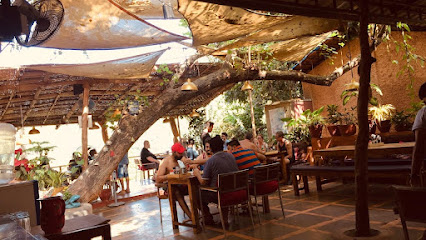
Anand Sea Food bar & restaurant anjuna
Discover authentic Goan flavors at Anand Sea Food Bar & Restaurant in Anjuna - where fresh seafood meets vibrant coastal charm.
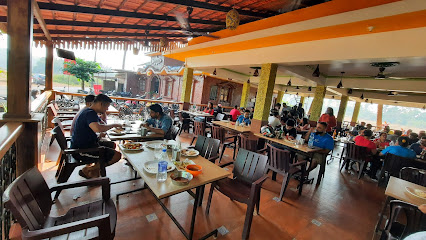
Cafe Cotinga
Discover Cafe Cotinga in Anjuna - where exquisite Indian and Italian flavors meet vibrant Goan culture in an inviting atmosphere.
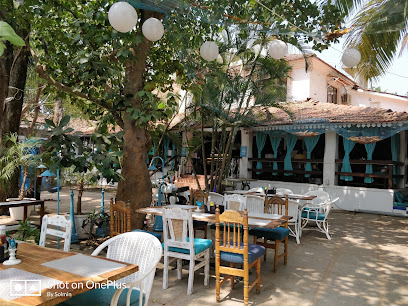
Goa's Ark Restaurant
Experience the fusion of Mediterranean and local cuisine at Goa's Ark Restaurant in Anjuna - where every meal is a celebration.
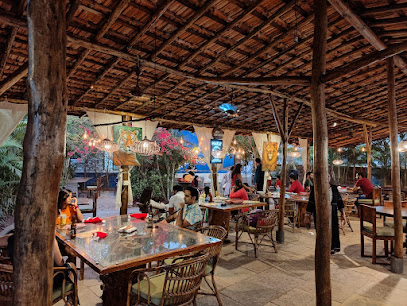
Angry Sardar Courtyard
Discover the vibrant flavors of Punjab at Angry Sardar Courtyard in Anjuna, Goa – where every meal is a celebration of authentic Indian cuisine.
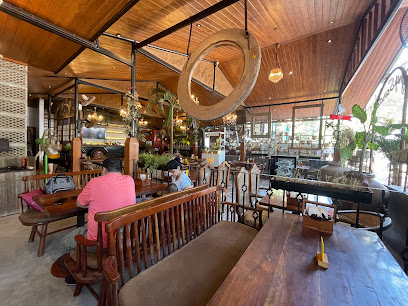
Square Sparrow Goa
Experience exquisite dining at Square Sparrow Goa - where local flavors meet international cuisine in a vibrant beachside setting.
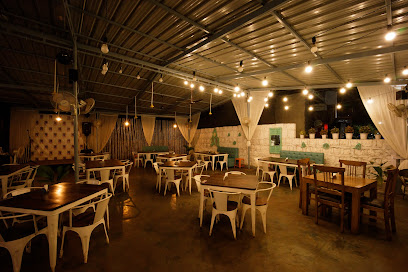
Felix
Experience the vibrant flavors of Goa at Felix – your ultimate destination for exquisite dining, fresh bakery delights, and lively entertainment.
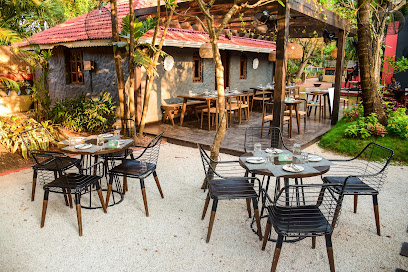
Country Kitchen
Discover diverse culinary delights at Country Kitchen in Anjuna, Goa - from hearty breakfasts to exquisite seafood dishes.
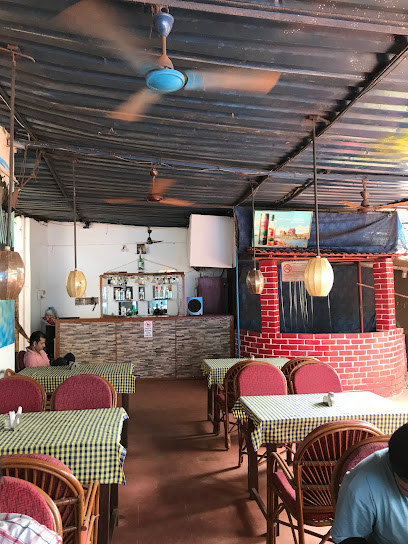
Markets, malls and hidden boutiques
Yacxilan Artwear
Discover unique clothing and local designer fashion at Yacxilan Artwear in Anjuna, Goa – a must-visit for style-savvy travelers.
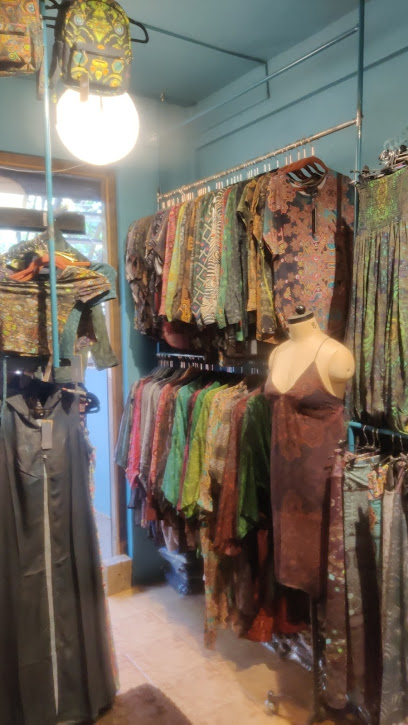
Ojasvana
Discover Ojasvana, Anjuna's vibrant clothing store, where unique fashion meets the spirit of Goa.
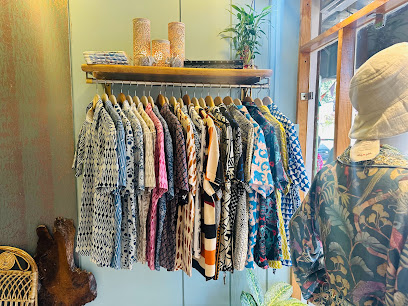
Circa by Mayank Anand
Explore the charm of antique treasures and local art at Circa by Mayank Anand in Anjuna, Goa - a must-visit for art and history lovers.
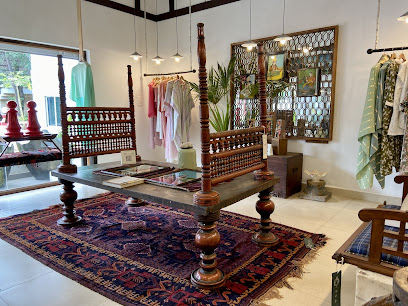
ALIAUM Boutique
Explore ALIAUM Boutique in Anjuna, Goa – a treasure trove of unique fashion and accessories that reflect the vibrant spirit of the region.
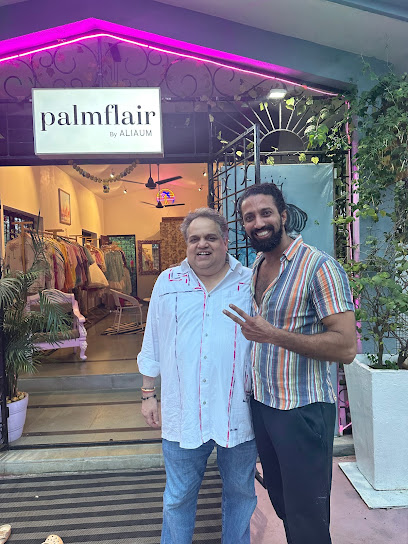
Unique Tunic
Explore Unique Tunic in Anjuna, Goa, for designer clothing that captures the essence of local culture and modern fashion.
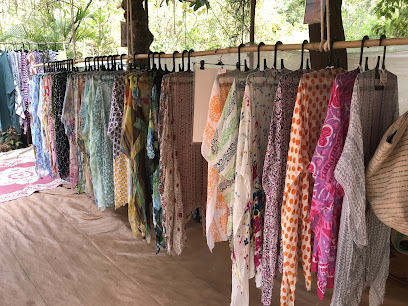
ZAIA GOA
Explore Zaia Goa: Your ultimate designer clothing store and café experience in the heart of Vagator, where fashion meets relaxation.
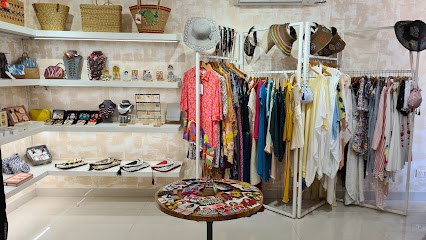
WOODEN VALLEY Antique Store
Explore WOODEN VALLEY Antique Store in Anjuna, Goa - a treasure trove of vintage finds and handcrafted furniture that tells a story.
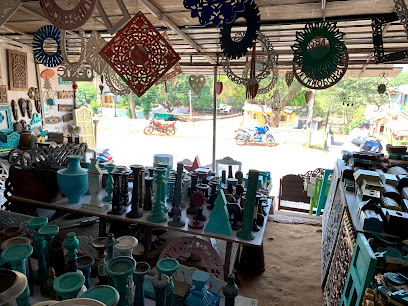
Anjuna market
Explore Anjuna Market, a vibrant shopping destination in Goa, where beach fashion meets local crafts in a lively atmosphere.
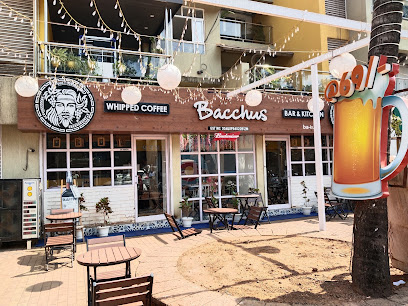
MV Boutique
Explore MV Boutique in Anjuna for trendy clothing that reflects the vibrant spirit of Goa, perfect for every fashion-forward traveler.
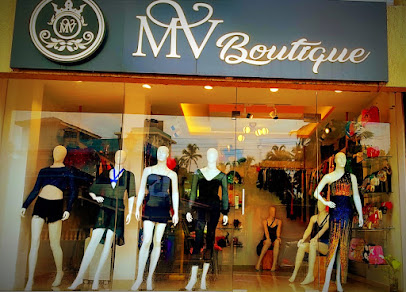
Anjuna gifts and rare art shop by Max Sharma
Explore Anjuna Gifts, a unique shop in Goa offering exquisite handicrafts, jewelry, and souvenirs that embody the artistic spirit of the region.
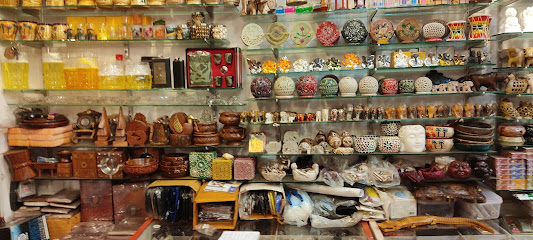
Essential bars & hidden hideouts
Purple Martini
Experience the vibrant nightlife of Anjuna at Purple Martini, where stunning sunsets, delicious cuisine, and lively music come together for an unforgettable evening.
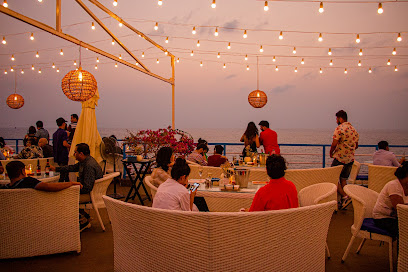
Guru Bar
Experience the vibrant nightlife of Anjuna at Guru Bar, a historic venue offering live music, delicious food, and refreshing drinks in Goa.
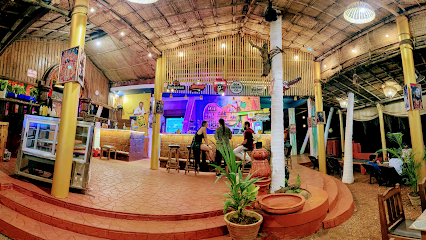
Uv Bar
Experience the vibrant nightlife at Uv Bar, a premier disco club and lounge on Anjuna Beach, where music, cocktails, and stunning views await.
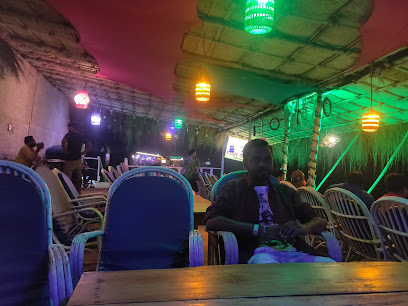
Don Rob's Bar & Kitchen: Best Bar in Goa
Explore the vibrant nightlife of Goa at Don Rob's Bar & Kitchen, where great food meets an unforgettable atmosphere.
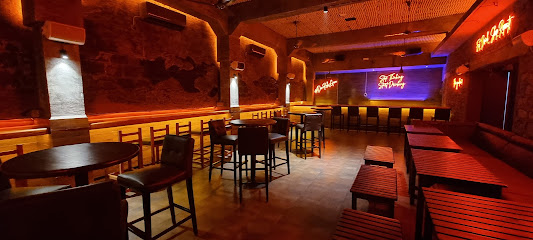
Howling wolves
Experience the vibrant nightlife at Howling Wolves, Anjuna's top bar and grill with live music, delicious cocktails, and a lively atmosphere.
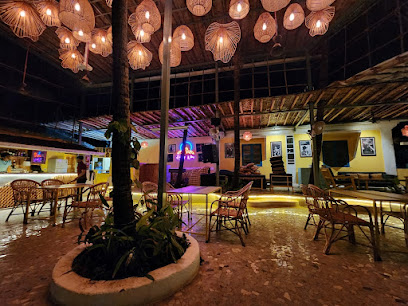
Amnesia Bar and Kitchen
Experience the vibrant nightlife and delicious seafood delights at Amnesia Bar and Kitchen in Vagator, a true gem of Goa's social scene.
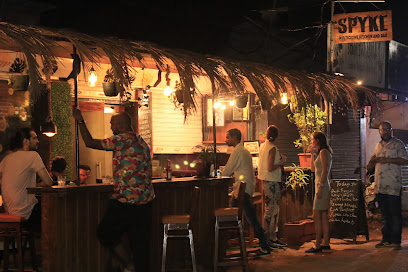
Lobos Juice Bar & Restaurant
Experience the vibrant flavors of Goa at Lobos Juice Bar & Restaurant, where refreshing drinks and delicious meals await by the beach.
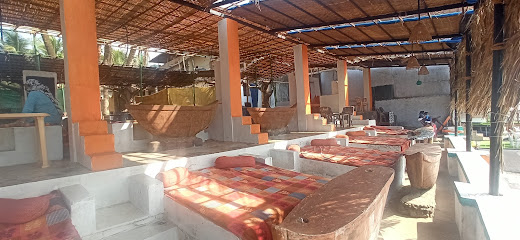
Captain's Bar
Experience the vibrant nightlife at Captain's Bar in Anjuna, where great drinks, live music, and a friendly atmosphere await.
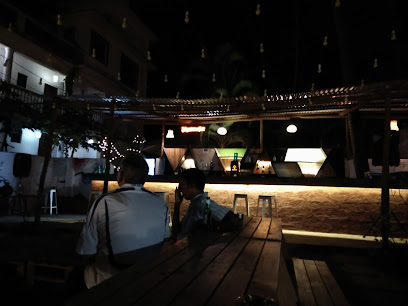
SPEAKEASY
Discover the vibrant nightlife at Speakeasy, Anjuna's hidden gem offering delicious food and drinks in a lively atmosphere.
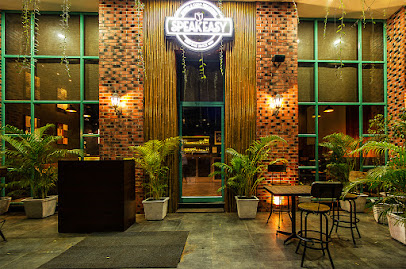
Rocking Bar & Restaurant
Experience the vibrant spirit of Anjuna at Rocking Bar & Restaurant, where delicious cuisine meets a lively atmosphere in Goa.
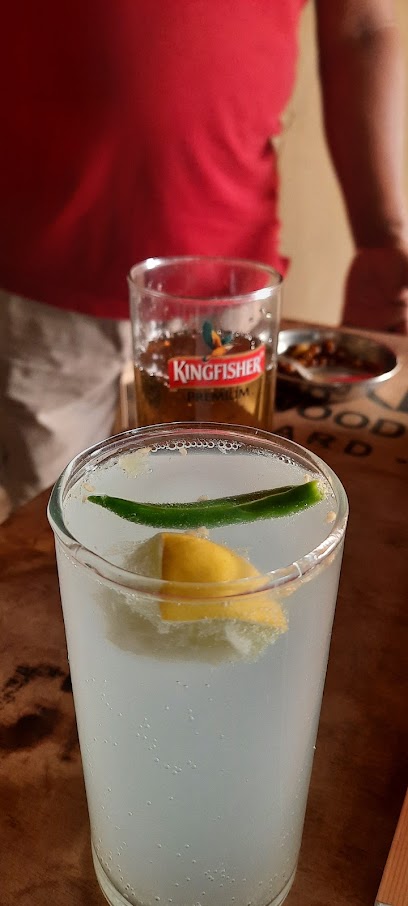
Local Phrases
-
- Helloनमस्कार
[Namaskar] - Goodbyeअलविदा
[Alvida] - Yesहो
[Ho] - Noनको
[Nako] - Please/You're welcomeकृपया / स्वागत है
[Kripya / Swagat hai] - Thank youधन्यवाद
[Dhanyavad] - Excuse me/Sorryक्षमा करें
[Kshama karein] - How are you?तुम्ही कसे आहात?
[Tumhi kase aahat?] - Fine. And you?ठीक आहे. तू कसा आहेस?
[Theek ahe. Tu kasa ahes?] - Do you speak English?तुम्हाला इंग्रजी येते का?
[Tumhala English yete ka?] - I don't understandमला समजलं नाही
[Mala samjala nahi]
- Helloनमस्कार
-
- I'd like to see the menu, pleaseकृपया मेनू पाहू इच्छितो
[Kripya menu pahu ichhito] - I don't eat meatमी मांस खात नाही
[Mi maans khat nahi] - Cheers!चियर्स!
[Cheers!] - I would like to pay, pleaseकृपया मी पैसे देऊ इच्छितो
[Kripya mi paise deu ichhito]
- I'd like to see the menu, pleaseकृपया मेनू पाहू इच्छितो
-
- Help!मदत!
[Madat!] - Go away!चला जा!
[Chala ja!] - Call the Police!पोलिसला कॉल करा!
[Police la call kara!] - Call a doctor!डॉक्टरला कॉल करा!
[Doctor la call kara!] - I'm lostमी वेळ गेलो आहे
[Mi vel galo ahe] - I'm illमाझ्याला आजार आहे
[Mazhala ajar ahe]
- Help!मदत!
-
- I'd like to buy...मला ... विकत घ्यायचं आहे
[Mala ... vikat ghyaycha ahe] - I'm just lookingमी फक्त पाहत आहे
[Mi fakt paahat ahe] - How much is it?याची किती किंमत आहे?
[Yachi kiti kimat ahe?] - That's too expensiveते खूपच महाग आहे
[Te khupach mahag ahe] - Can you lower the price?किंमत कमी करू शकता का?
[Kimat kamee karu shakta ka?]
- I'd like to buy...मला ... विकत घ्यायचं आहे
-
- What time is it?वेळ किती झालं आहे?
[Vel kiti jhal ahe?] - It's one o'clockएक वाजलं आहे
[Ek wajal ahe] - Half past (10)दहा वाजता
[Daha wajata] - Morningसकाळ
[Sakal] - Afternoonउपास
[Upas] - Eveningसंध्याकाळ
[Sandhyakal] - Yesterdayकाल
[Kal] - Todayआज
[Aaj] - Tomorrowउद्या
[Udya] - 1एक
[Ek] - 2दोन
[Don] - 3तीन
[Teen] - 4चार
[Char] - 5पाच
[Pach] - 6सहा
[Saha] - 7सात
[Sat] - 8आठ
[Aath] - 9नऊ
[Nau] - 10दहा
[Daha]
- What time is it?वेळ किती झालं आहे?
-
- Where's a/the...?... कुठे आहे?
[... Kuthe ahe?] - What's the address?पत्ता काय आहे?
[Patta kay ahe?] - Can you show me (on the map)?तुम्ही मला दाखवू शकता का (नकाशावर)?
[Tumhi mala dakhave shakta ka (nakashavar)?] - When's the next (bus)?पुढचं (बस) कधी आहे?
[Pudhach (bus) kadhi ahe?] - A ticket (to ....)(.... ला) एक टिकिट
[(.... la) ek ticket]
- Where's a/the...?... कुठे आहे?
History of Anjuna
-
Anjuna's history is intricately linked to the arrival of the Portuguese in the 16th century. They established control over Goa, leading to significant cultural and religious transformations. Anjuna, like other coastal villages, became a focal point for trade and missionary activities, with churches and forts built to assert Portuguese influence.
-
In the 1960s and 70s, Anjuna rose to prominence as a hub for the counterculture movement, attracting hippies and travelers from around the world. The famous Anjuna Beach became synonymous with the 'Flower Power' movement, hosting vibrant beach parties and the iconic Anjuna Flea Market that showcased local crafts, art, and music.
-
By the late 1980s, Anjuna became the birthplace of the Goa trance music genre, characterized by its psychedelic sound and vibrant parties. This movement transformed the area into a global destination for electronic music lovers, with numerous open-air parties and festivals that drew thousands of revelers each year.
-
Anjuna reflects a unique blend of cultures, influenced by its Portuguese colonial past and the influx of international tourists. This fusion is evident in the local cuisine, featuring traditional Goan dishes alongside international fare, and in the artistic expressions found in local galleries and street performances.
-
In recent years, Anjuna has faced challenges due to over-tourism and environmental concerns. Local initiatives have emerged focusing on sustainable tourism practices, aiming to preserve the natural beauty of the area while promoting local culture and heritage, ensuring that Anjuna remains a vibrant community for generations to come.
Anjuna Essentials
-
Anjuna is conveniently located about 30 kilometers from Goa's Dabolim Airport, which serves as the main international gateway. From the airport, you can hire a taxi or book a ride through ride-sharing apps. If you're coming from other popular neighborhoods like Baga or Calangute, local buses and taxis are available. The nearest railway station is Thivim, about 20 kilometers away, with taxi services readily available to Anjuna.
-
Anjuna is best explored on foot or by bicycle, with many attractions within walking distance. For longer distances or more remote beaches, renting a scooter is popular and affordable. Public buses do connect Anjuna to nearby areas, but they may not run frequently. Alternatively, you can use local taxis or ride-sharing services for more convenience.
-
Anjuna generally has a low crime rate, but tourists should remain vigilant. Areas around Anjuna Beach can be crowded, making them susceptible to petty theft. It’s advisable to avoid isolated beaches at night. While violent crime is rare, incidents of drug-related crime have been reported, so exercise caution and avoid engaging in illegal activities.
-
For emergencies, dial 112 for police, fire, and medical services in India. In Anjuna, the nearest hospital is the Dr. R. S. Naik Memorial Hospital. It’s recommended to have travel insurance that covers medical emergencies. Pharmacies are available in the area for minor health issues, and local police stations can assist with any safety concerns.
-
Fashion: Do wear light, breathable clothing suitable for the tropical climate, but avoid overly revealing attire in public places. Religion: Do respect local customs, especially when visiting temples; remove shoes before entering. Public Transport: Do be courteous; give your seat to elderly passengers. Don’t eat or drink on buses. Greetings: Do greet locals with a friendly 'Namaste.' Don’t be overly familiar; personal space is respected. Eating & Drinking: Do try local seafood and Goan dishes, and always drink bottled water. Don’t drink alcohol in public places outside designated zones.
-
To experience Anjuna like a local, visit the Anjuna Flea Market on Wednesdays for unique handicrafts and local delicacies. Engage with local vendors and don’t hesitate to bargain. Explore the quieter beaches, like Vagator, for a more laid-back atmosphere. Attend a yoga class or wellness retreat for a taste of the local health culture. Finally, join in on local festivals like the Shigmo Festival for an authentic cultural experience.
Nearby Cities to Anjuna
-
Things To Do in Goa
-
Things To Do in Pune
-
Things To Do in Mumbai
-
Things To Do in Mysore
-
Things To Do in Nashik
-
Things To Do in Bengaluru
-
Things To Do in Aurangabad
-
Things To Do in Kozhikode
-
Things To Do in Coimbatore
-
Things To Do in Kochi
-
Things To Do in Vadodara
-
Things To Do in Chennai
-
Things To Do in Puducherry
-
Things To Do in Pondicherry
-
Things To Do in Madurai








